
It was spring in the Lowveld. Dawn was breaking earlier each day and the Yellow-billed Kites were back from their winter wanderings. Despite the general dryness of the place, trees were flowering on cue. Weeping boerbeans dripped with red blossoms and tree wisterias splashed their purple mantles over the landscape, while the knobthorns erupted in clouds of cream-coloured exuberance that had you either sneezing incessantly or gasping with delight. In our residential estate outside Hoedspruit, Limpopo, natural vegetation is left intact and homes nestle among the trees.
But not all the trees were dressed in flowers or leaves. In fact most, like the marulas, had yet to produce any cover for their bare branches and on an afternoon in early September that played to my advantage. Sitting at my computer, I heard a distant but familiar piping call from the bush outside. It was a Pearlspotted Owlet Glaucidium perlatum sharing its bold crescendo with the world. Deciding to see if I could locate the source of the call, I grabbed my camera and forced a path through the sickle bush outside our house. There, in a sudden clearing, I saw a small brown lump perched on an exposed branch. One of Africa's smallest owls had rewarded my search.
After taking a few photographs, I realised that I needed a different lens. Reluctantly I decided to take the chance of leaving the bird in the hope that it would stay put until I returned, better armed. It did. Once again I could click away happily, but only until I moved too close and the bird took flight. Fortunately it landed in a bare marula tree only 20 metres away, so I edged closer, determined not to scare it off again.
هذه القصة مأخوذة من طبعة March 2023 من African Birdlife.
ابدأ النسخة التجريبية المجانية من Magzter GOLD لمدة 7 أيام للوصول إلى آلاف القصص المتميزة المنسقة وأكثر من 9,000 مجلة وصحيفة.
بالفعل مشترك ? تسجيل الدخول
هذه القصة مأخوذة من طبعة March 2023 من African Birdlife.
ابدأ النسخة التجريبية المجانية من Magzter GOLD لمدة 7 أيام للوصول إلى آلاف القصص المتميزة المنسقة وأكثر من 9,000 مجلة وصحيفة.
بالفعل مشترك? تسجيل الدخول

EXPLORING NEW HORIZONS
Keith Barnes, co-author of the new Field Guide to Birds of Greater Southern Africa, chats about the long-neglected birding regions just north of the Kunene and Zambezi, getting back to watching birds and the vulture that changed his life.

footloose IN FYNBOS
The Walker Bay Diversity Trail is a leisurely hike with a multitude of flowers, feathers and flavours along the way.
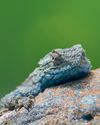
Living forwards
How photographing birds helps me face adversity
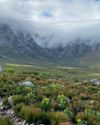
CAPE crusade
The Cape Bird Club/City of Cape Town Birding Big Year Challenge
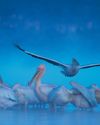
water & WINGS
WATER IS LIFE. As wildlife photographer Greg du Toit knows better than most.
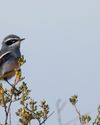
winter wanderer
as summer becomes a memory in the south, the skies are a little quieter as the migrants have returned to the warming north. But one bird endemic to the southern African region takes its own little winter journey.
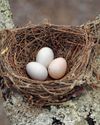
when perfect isn't enough
Egg signatures and forgeries in the cuckoo-drongo arms race

Southern SIGHTINGS
The late summer period naturally started quietening down after the midsummer excitement, but there were still some classy rarities on offer for birders all over the subregion. As always, none of the records included here have been adjudicated by any of the subregion's Rarities Committees.

flood impact on wetland birds
One of the features of a warming planet is increasingly erratic rainfall; years of drought followed by devastating floods. Fortunately, many waterbirds are pre-adapted to cope with such extremes, especially in southern Africa where they have evolved to exploit episodic rainfall events in semi-arid and arid regions. But how do waterbirds respond to floods in areas where rainfall - and access to water - is more predictable? Peter Ryan explores the consequences of recent floods on the birds of the Western Cape's Olifants River valley.
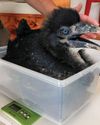
a star is born
It’s every producer’s dream to plan a wildlife television series and pick the right characters before filming.